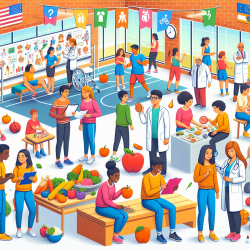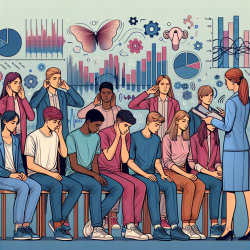Introduction
The COVID-19 pandemic reshaped many aspects of daily life, including the way families approach health and nutrition. A recent study titled "Impact of a school-based intervention and the COVID-19 pandemic on healthy eating in Navajo families: Results from the Yéego! Healthy eating and gardening intervention trial" sheds light on how school-based interventions can extend beyond the classroom, influencing family health behaviors.
Research Insights
Conducted across six elementary schools on the Navajo Nation, the Yéego! study explored the impact of a school-based gardening and healthy eating program. This intervention aimed to increase fruit and vegetable (F&V) intake among third and fourth-grade students and their families. Surveys were administered to adult family members at baseline, nine months, and 21 months to assess changes in dietary behaviors.
The study revealed a significant increase in F&V intake among adults in the intervention group compared to the control group, with an increase of 2.26 servings per day at nine months. This change was particularly notable among adults with COVID-19 concerns, suggesting that the intervention's impact was amplified by the pandemic's challenges.
Implications for Practitioners
For practitioners in the field of speech-language pathology and related disciplines, these findings underscore the potential of school-based interventions to influence broader family health behaviors. Here are some actionable insights:
- Extend the Reach: Consider designing interventions that involve family members, not just students. This can amplify the impact of school-based programs.
- Leverage Technology: Use online platforms to maintain engagement with families, especially during disruptions like the pandemic.
- Focus on Resilience: Programs that build resilience can help families maintain healthy behaviors during stressful times.
Encouraging Further Research
While the Yéego! study provides valuable insights, it also opens avenues for further research. Practitioners and researchers are encouraged to explore:
- Long-term Effects: Investigate the long-term sustainability of health behavior changes initiated by school-based interventions.
- Broader Applications: Apply similar intervention models in different cultural contexts to assess their effectiveness.
- Comprehensive Approaches: Combine nutrition education with other health-promoting activities, such as physical exercise, to enhance outcomes.
Conclusion
The Yéego! study demonstrates the far-reaching impact of school-based interventions on family health behaviors, especially in the face of external stressors like the COVID-19 pandemic. By incorporating family engagement and focusing on resilience, practitioners can enhance the effectiveness of their programs, contributing to healthier communities.
To read the original research paper, please follow this link: Impact of a school-based intervention and the COVID-19 pandemic on healthy eating in Navajo families: Results from the Yéego! Healthy eating and gardening intervention trial.










